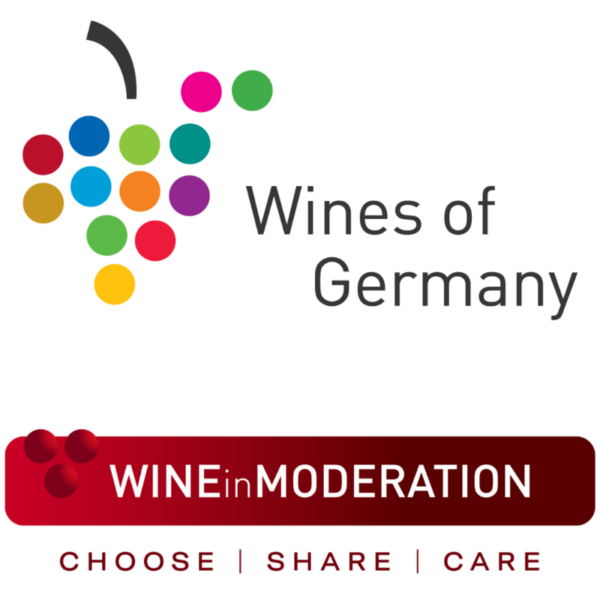Every month, our blog series ‘Whose Wine is it Anyway?’ profiles one German winemaker to give you a behind-the-vines look at the world of German wine. This month’s spotlighted estate is a renowned, family-operated winery in the Rheinhessen that dates back to the 17th century. With some 350 harvests carried out by over 15 generations under their belt, the Wittmann family combines tradition with innovation, all while making incredible organic and biodynamic wines. Read below to get to know Weingut Wittmann and the family member who manages the winery today, Philipp Wittmann.
Whose *Wine* is it Anyway? Meet Philipp Wittmann
Meet Philipp Wittmann
Estate: Weingut Wittmann
Region: Rheinhessen
Village: Westhofen
Focus: Riesling
Background
The Wittmann family has been tending to vines in the village of Westhofen in Rheinhessen since the 17th century. The experience of over 350 harvests across 15 generations serves as a testament to the family’s prowess in winemaking. This expertise that was passed on from fathers and mothers to sons and daughters throughout generations, while also fostering new ideas and innovative techniques to complement the family’s winemaking traditions. Today, Weingut Wittmann is co-managed by Philipp, his wife Eva Clüsserath (who also manages the winery Ansgar Clüsserath in the Mosel), and Philipp’s parents, Günter and Elisabeth Wittmann.
The cooperation between the two generations led to the rebirth of the winery, guiding it through a successful transition from conventional to ecologically conscious viticulture. It was Philipp’s father, Günter, who initially set the winery on this path by converting all of the estate’s vineyards to organic viticulture, securing certification in 1990, long before the term “organic” was as buzzy as it is today.
Aligned with his father’s approach, Philipp then took a step further and implemented biodynamic viticulture practices in 2004. The winery renounced the use of herbicides, chemical synthetic fungicides, insecticides and easily soluble mineral fertilizers. Instead, the soil is revitalized with compost and treated with minerals to welcome microorganisms and preserve biodiversity. Although seemingly progressive, the Wittmann’s return to ancestral farming methods is reminiscent of the old winegrowing traditions of their forefathers.
“Vines in balance. Wines in balance. Winemaker in balance.“
— Philipp Wittmann
Organic and biodynamic practices extend from the vineyards to the cellars, where the handpicked grapes are gently pressed in a modern pneumatic press, yielding juice lacking the bitterness that can come from heavy pressing. The juice then ferments spontaneously with natural yeasts either in stainless steel tanks or neutral oak casks. The natural and slow fermentation is intended to preserve the aromas and yield balanced wines with a striking combination of elegance and freshness.
Philipp’s winemaking philosophy combines traditional and natural viticulture, striving to produce terroir-driven wines that showcase the inherent character of the fruit and the land with minimal intervention in the vineyard and cellar. Philipp’s dedication to organic and biodynamic winemaking and his high-quality wines earned him Germany’s Winemaker of the Year 2014 from Gault & Millau Weinguide. In addition, Philipp served many years as President of the Rheinhessen section of the VDP (the German association representing many of the country’s top producers).
Vineyards
Weingut Wittmann’s estate comprises 62 acres of vines in the village of Westhofen, among the rolling limestone hills found in the southern part of the Rheinhessen region just west of the Rhine River. There, the Wittmanns produce top-quality Riesling, sourced from its four Grosses Gewächs-classified sites: Aulerde, Kirchspiel, Morstein, and Brunnenhäuschen, each offering distinct terroir.
- Aulerde: First documented in 1380, this site is protected by the eastern and southeastern slopes of the neighboring Kirchspiel and is the warmest of the estate’s vineyards. The Wittmanns’ parcel is the only portion of the Aulerde vineyard that grows Riesling.
- Kirschspiel: This vineyard opens toward the Rhine like an amphitheater. Its south to southeast exposure receives optimal sun and protects the vines from cold westerly winds, which accounts for the site’s ideal microclimate.
- Morstein: This vineyard is located in the area’s best southeast-facing slopes. The limestone in the subsoil ensures that the vines are well supplied with nutrients and accounts for the minerality of its wines.
- Brunnenhäuschen: This cool, elevated site allows the grapes to ripen slowly, where they’re then harvested later than those from other sites.
Wines
Riesling is the dominant grape variety, accounting for 65% of the estate’s vineyard area. They also produce the three Pinot varieties, Weissburgunder (Pinot Blanc), Grauburgunder (Pinot Gris) and Spätburgunder (Pinot Noir), as well as Silvaner and small quantities of Scheurebe, Chardonnay and more. The Wittmanns have been pioneers in developing the full-bodied, well-balanced style of dry wines for which the region has become known.
Message In A Bottle
For a brief time, Rheinhessen was known for its simple, sweet white wines. In the late 90’s, a group of young, ambitious winemakers banded together to produce quality-driven Rheinhessen wines and revive the region’s reputation. These young winemakers, who had recently taken over their families’ estates, were Philipp Wittmann, Klaus Peter Keller, Carolin Kühling-Gillot and Hans-Oliver Spanier.
In 2002, the friends founded “Message In A Bottle,” an association that encouraged cooperation among young vintners in the region, enabling the exchange of information and the mentoring of new winemakers. The group was a catalyst for the Rheinhessen’s renaissance and the association grew to a total of 28 winemakers.
Explore more
Visit Weingut Wittmann’s website
U.S. Importer: Loosen Bros USA
VDP. Profile: VDP. Weingut Wittmann
Stay tuned for next month’s winemaker spotlight! Follow us on Instagram, Twitter, and Facebook at @GermanWineUSA and subscribe to our newsletter to stay up to date on all things German Wine in the U.S.
